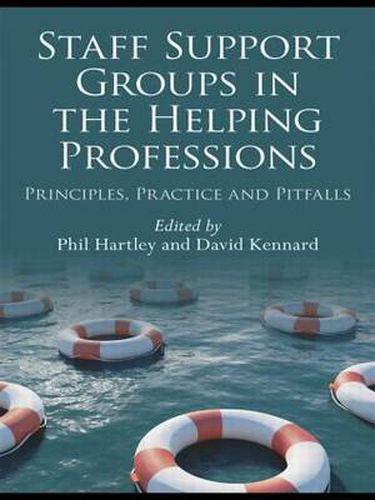Readings Newsletter
Become a Readings Member to make your shopping experience even easier.
Sign in or sign up for free!
You’re not far away from qualifying for FREE standard shipping within Australia
You’ve qualified for FREE standard shipping within Australia
The cart is loading…






Staff burnout and work-related stress in mental health professionals cost the National Health Service not only millions of pounds each year, but also impact upon the welfare of those being cared for. Staff Support Groups in the Helping Professions takes the lead from recent Department of Health initiatives, promoting the use of staff support groups to foster emotional resilience, deal with potential conflict and support reflective practice. In this book Hartley, Kennard and their contributors explore the influences that help and hinder the setting up and running of staff support groups, and attempt to counter the often negative reactions that the term ‘staff support’ can evoke. They demonstrate that such support groups can be a sophisticated and valuable intervention that needs careful preparation and skilful management to succeed, and will in turn not only benefit the individual, but also the department as a whole and those that they care for. Contributors share their experiences of facilitating support groups in a number of settings including: psychiatric wards therapeutic communities social services schools children’s homes. Containing a wealth of case material, Staff Support Groups in the Helping Professions will provide much-needed guidance for those professionals attending, managing, or in the process of setting up a staff support group.
$9.00 standard shipping within Australia
FREE standard shipping within Australia for orders over $100.00
Express & International shipping calculated at checkout
Staff burnout and work-related stress in mental health professionals cost the National Health Service not only millions of pounds each year, but also impact upon the welfare of those being cared for. Staff Support Groups in the Helping Professions takes the lead from recent Department of Health initiatives, promoting the use of staff support groups to foster emotional resilience, deal with potential conflict and support reflective practice. In this book Hartley, Kennard and their contributors explore the influences that help and hinder the setting up and running of staff support groups, and attempt to counter the often negative reactions that the term ‘staff support’ can evoke. They demonstrate that such support groups can be a sophisticated and valuable intervention that needs careful preparation and skilful management to succeed, and will in turn not only benefit the individual, but also the department as a whole and those that they care for. Contributors share their experiences of facilitating support groups in a number of settings including: psychiatric wards therapeutic communities social services schools children’s homes. Containing a wealth of case material, Staff Support Groups in the Helping Professions will provide much-needed guidance for those professionals attending, managing, or in the process of setting up a staff support group.